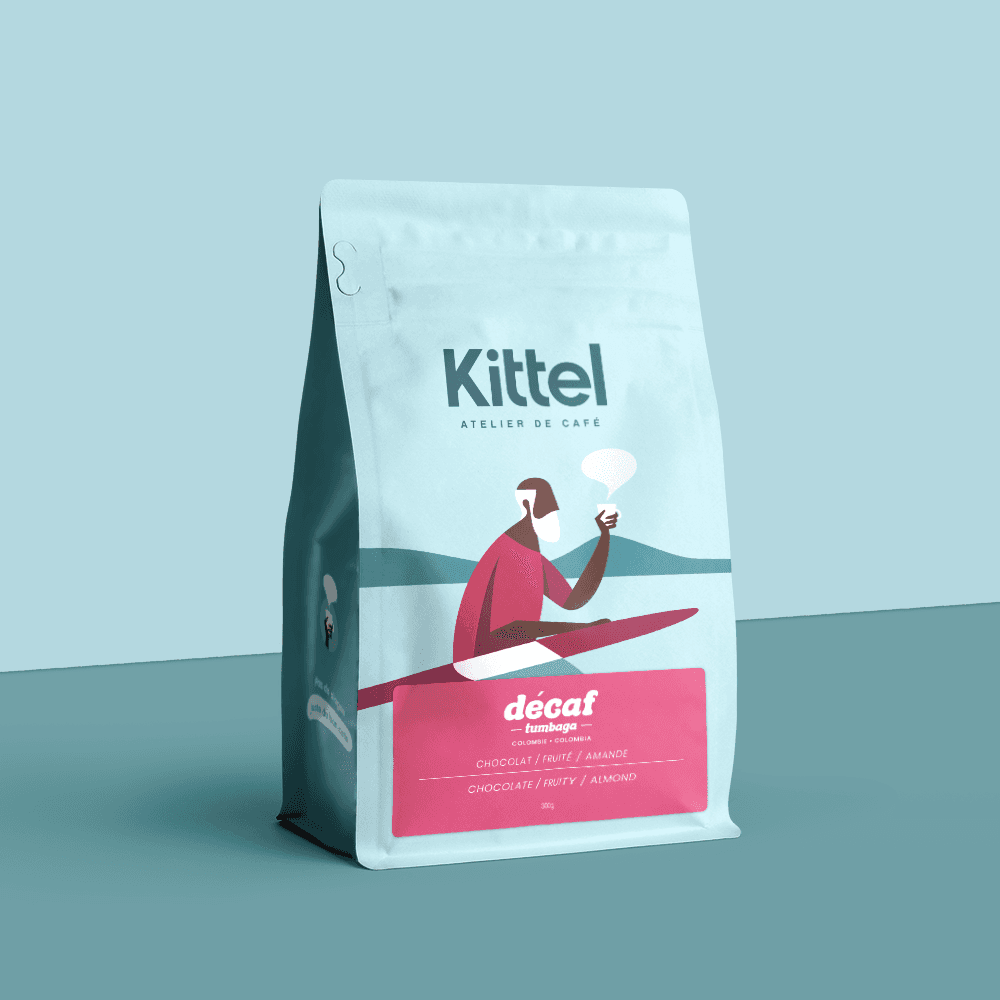Th3rdwave Directories
Cafés
Roasters
Coffees
Guides
Awards
Th3rdwave Coffee Club
Subscription
Gift subscription
Current edition
Past editions
Shop
Advent Calendar
Coffee games
Th3rdwave Wallet
Loyalty cards
Gift cards
Th3rdwave for cafés
Th3rdwave for roasters
Get free coffee
Tumbaga Decaf
This coffee was decaffeinated using the ethyl acetate process. This method uses fermented sugarcane molasses as a solvent to remove caffeine from green coffee beans.
It comes from various independent farmers, with average farm sizes ranging from 1 to 4.5 hectares at altitudes between 1,400 and 2,100 meters above sea level. Tumbaga is a blend of high-quality regional coffee named after an alloy of gold, copper, and silver used in Colombia to craft small objects, often religious in nature. The blend changes with the seasons based on harvest periods, typically sourced from Tolima or Cauca during the summer months and from Antioquia or the Eje Cafetero regions during the winter months.
The resulting cup reminds us of chocolate pudding, fruit salad, and roasted almonds.
It comes from various independent farmers, with average farm sizes ranging from 1 to 4.5 hectares at altitudes between 1,400 and 2,100 meters above sea level. Tumbaga is a blend of high-quality regional coffee named after an alloy of gold, copper, and silver used in Colombia to craft small objects, often religious in nature. The blend changes with the seasons based on harvest periods, typically sourced from Tolima or Cauca during the summer months and from Antioquia or the Eje Cafetero regions during the winter months.
The resulting cup reminds us of chocolate pudding, fruit salad, and roasted almonds.
This coffee was decaffeinated using the ethyl acetate process. This method uses fermented sugarcane molasses as a solvent to remove caffeine from green coffee beans.
It comes from various independent farmers, with average farm sizes ranging from 1 to 4.5 hectares at altitudes between 1,400 and 2,100 meters above sea level. Tumbaga is a blend of high-quality regional coffee named after an alloy of gold, copper, and silver used in Colombia to craft small objects, often religious in nature. The blend changes with the seasons based on harvest periods, typically sourced from Tolima or Cauca during the summer months and from Antioquia or the Eje Cafetero regions during the winter months.
The resulting cup reminds us of chocolate pudding, fruit salad, and roasted almonds.
It comes from various independent farmers, with average farm sizes ranging from 1 to 4.5 hectares at altitudes between 1,400 and 2,100 meters above sea level. Tumbaga is a blend of high-quality regional coffee named after an alloy of gold, copper, and silver used in Colombia to craft small objects, often religious in nature. The blend changes with the seasons based on harvest periods, typically sourced from Tolima or Cauca during the summer months and from Antioquia or the Eje Cafetero regions during the winter months.
The resulting cup reminds us of chocolate pudding, fruit salad, and roasted almonds.
Coffee origin
Country
Colombia
Region
Various
Variety
various
Altitude
1000 - 2000 m
Farm
Various
Producer
Various
Roast level
Medium
Process
Washed, Sugar Cane Decaffeination (EA)
Tastes like
🍫
chocolate pudding
🍎
fruit salad
🥜
roasted almond
Community reviews
🙂
2.8 Good
2 Reviews
Recipes
Check out more in the App







